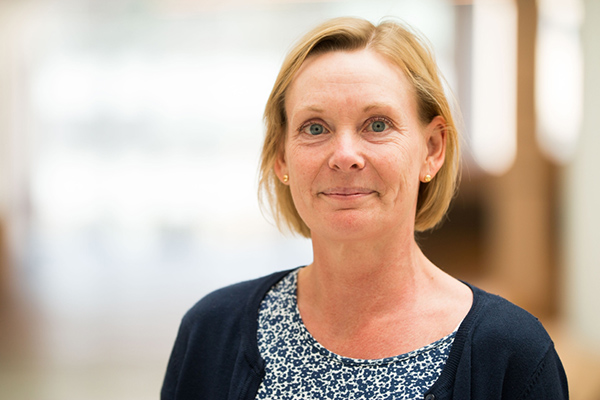At the time of writing, it is planned to hold the Scholastic Aptitude Test twice during spring semester 2021. Participation will be limited to one occasion for each applicant during the spring. It is planned to hold the test once during the autumn semester 2021.
The period of validity for test results has also been extended to eight years from the previous five years. The Government has also decided that these tests will be restricted to those who do not already have a valid Swedish Scholastic Aptitude Test result.
Approximately 100,000 people usually sit the Scholastic Aptitude Test, which is held simultaneously across the country. Everyone who sits the test begins at exactly the same time and has lunch and breaks at the same time.
“Of course, it would not be practical to hold the test at different times as there would then be an obvious risk of cheating,” says Cilla Häggkvist, deputy head of the Student Affairs and Academic Registry Division at Uppsala University.
Would it not be possible to hold the test on several occasions but with different papers?
“There is no time to prepare an additional test paper for use during the autumn. The test must be prepared, tested and standardised. This is a long process. However, there are plans to hold the test on two occasions during the spring of 2021, when the test intended for autumn 2020 can be used and there will be time to prepare a new test.”
But couldn’t the same test be held in many different venues simultaneously to minimise the number of people in the same place?
“There are a number of problems with that. Firstly, we would need infection-proof premises as the test takes a whole day and the coronavirus is an airborne infection. Among other things, this world require good ventilation. Secondly, the risk of cheating would increase given both the number of premises the test paper would need to be transported to and the number of people handling the paper. More venues would also require more invigilators who would need to be trained in exactly how to administer the test, as there are strict rules about how the test should be conducted. Many of our normal invigilators are in the over-70s at-risk group and are not keen to take part.”
Cilla Häggkvist emphasises that the cancellation of the Scholastic Aptitude Test is a problem that affects all those who were counting on the result to be admitted to a study programme. The Swedish National Union of Students has calculated that, of the approximately 100,000 who take the Scholastic Aptitude Test each year, no more that 3,300 are dependent on the test for admission to their intended study programme.
“Most study programmes do not have any selection, if you eligible you will be admitted. The Scholastic Aptitude Test is not compulsory for admittance to higher education. It is also important to remember that the Scholastic Aptitude Test does not mean more study places; the number of people admitted will be the same with or without the test.”
